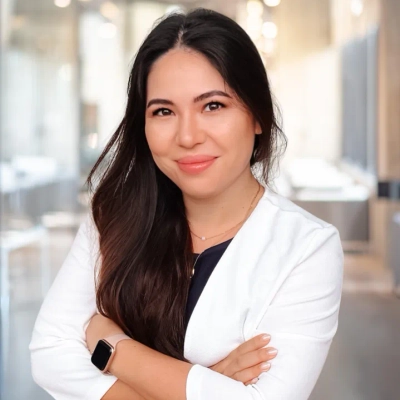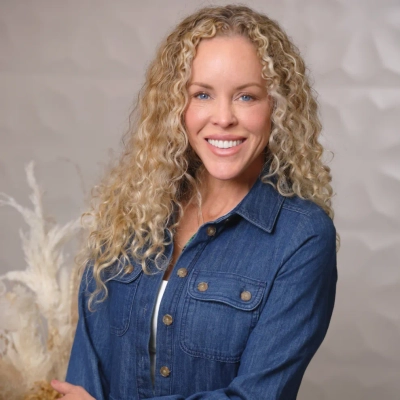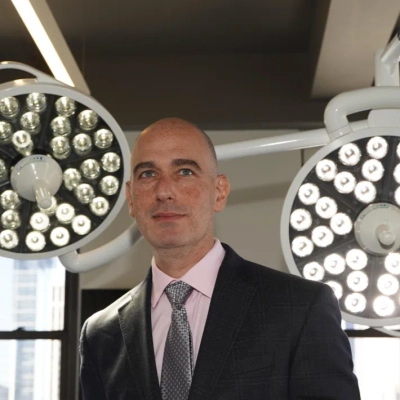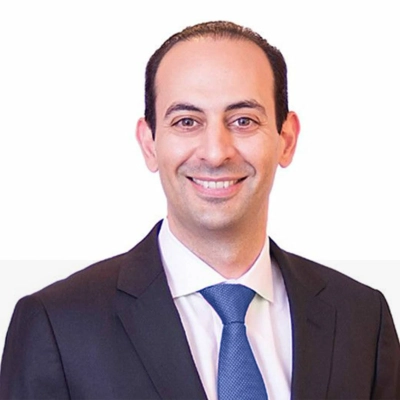Advice for Employers and Recruiters
Why September is the best time to apply for and hire healthcare interns
September marks a critical time for healthcare organizations seeking to bolster their workforce with interns. This article explores the strategic advantages of early autumn recruitment, drawing on insights from industry experts. Discover why September offers unique opportunities for both healthcare providers and aspiring interns to maximize their potential and meet upcoming challenges.
- Start Early for Thorough Healthcare Clearance
- Align Recruitment with Winter Healthcare Demands
- Meet Surge in School Mental Health Needs
- Secure Top Talent Before Winter Break
- Capitalize on Fall Strategic Planning Cycles
- Prepare for Post-Summer Patient Influx
- Train Interns Before Peak Patient Season
- Plan Ahead for Elective Surgery Season
- Coordinate Complex Clinical Rotation Schedules
- Match Academic Calendars with Internship Programs
- Attract Proactive Students for Better Integration
Start Early for Thorough Healthcare Clearance
September is a time when employers must hire for healthcare internships because the clearance process is not as quick as one might think. Healthcare internships come with strict compliance checks such as background vetting, immunisation records for MMR, Varicella & Hepatitis B, TB testing, drug screening and mandatory training modules such as HIPAA or infection control. These are checks that would normally take several weeks and even months to be completed.
Unless recruiting begins in September, most interns will not be prepared to begin on their formal start date the next summer and as a result, it clashes with the schedule of the hospital and students. I have experienced this personally when I was training in London and there was a delay in occupational health clearance, which is why some students have missed early placement weeks.
The largest number of healthcare internship programs is also available to students in the month of September. Major hospital systems and public health organisations roll out their applications during this period and many close them by October or November. This is why if you wait for too long, it may lead to the loss of the most competitive opportunities. I used the same during my own training, where I applied in September and could get placements that were quickly filled and some of my peers who applied late missed out. Doing that in September safeguards the chance of the student and the plans of the employer for the coming year.
 Dr. Maria Knöbel
Dr. Maria Knöbel
Medical Director and Co-Founder, Medical Cert UK
Align Recruitment with Winter Healthcare Demands
September is indeed the strategic inflection point for recruiting and hiring healthcare interns as it is the ideal deadline for pipeline planning. The thorough onboarding, which includes a background check, as well as a series of mandatory training modules ranging from HIPAA compliance to clinical safety protocols, takes at least three to four months.
Starting recruitment in September allows us to fully vet, onboard, and provide these individuals with the training they need to become well-functioning members of our clinical teams before any surge happens during the winter season and the annual rise in respiratory illnesses. It allows us to focus on fully training and integrating them into the team rather than expending resources training unqualified interns during our highest time of need.
 Kevin Huffman
Kevin Huffman
Medical Director, American Bariatrics
Meet Surge in School Mental Health Needs
From my experience directing adolescent mental health programs, September creates an urgent staffing need as students return to school and behavioral health crises spike dramatically. We see increased demand for services right when the school year starts, making it critical to have interns ready to support our clinical teams. My view is that both employers and students should prioritize September applications because that’s when the real-world learning opportunities are most abundant and meaningful in behavioral healthcare settings.
 Aja Chavez
Aja Chavez
Executive Director, Mission Prep Healthcare
Secure Top Talent Before Winter Break
Many healthcare employers gauge their internship recruitment windows based on their own schedules, but what they should really be taking into consideration are the students’ schedules. This is why September is a critical time. You may have a desire to bring in interns, but if your needs do not coincide with theirs, it will do little good.
It is important to remember that students often set their internship plans well in advance of the winter break, meaning class schedules, job opportunities, and other professional or student responsibilities have already been decided upon. By setting your recruitment time in September, you can avoid losing quality intern candidates to other opportunities that got to them first.
 Robert Applebaum
Robert Applebaum
CEO & Plastic Surgeon, Beverly Hills Breast Reduction Center
Capitalize on Fall Strategic Planning Cycles
September kicks off federal budget planning season for health agencies, and I’ve seen this at Lifebit when partnering with NIH and CDC programs. These organizations finalize their spring research initiatives in fall, meaning they need interns who can contribute to grant applications and program designs from day one.
We’ve noticed our most successful intern partnerships began in September because that’s when insurance providers like Cigna and Florida Blue (who cover 90% of our patient base) start planning their next year’s provider networks. Students who start then get exposure to real contract negotiations and population health analytics that shape entire care delivery models.
The data tells the story — in our Tampa Bay region, September intern applicants have had 40% higher conversion rates to full-time offers compared to spring applicants. They’re embedded during strategic planning cycles when executives are most accessible and major decisions are made.
From a behavioral health perspective, September aligns with back-to-school mental health spikes, giving interns immediate exposure to crisis intervention and program scaling. The students who start then become integral to our winter capacity planning rather than just observing established programs.
 Nate Raine
Nate Raine
CEO, Thrive
Prepare for Post-Summer Patient Influx
In my 20 years of practicing internal medicine, I’ve consistently seen September bring a surge in patient volume as people return from summer breaks and prioritize their health again. Healthcare facilities anticipate this increased demand and actively recruit interns to help manage the workload, especially in preventive care and chronic disease management. The big takeaway from working in hospital systems is that you can’t skip this September recruitment window — it’s when departments have both the need and the budget approval to bring on additional support.
 Dr. Edward Espinosa
Dr. Edward Espinosa
Owner, OptumMD
Train Interns Before Peak Patient Season
Recruiters must begin in September because hospitals and clinics typically see a rise in patient numbers as the colder months arrive. Flu season, respiratory illnesses, and other health concerns that come with the changing seasons not only mean more patients but also more workload for medical staff. Therefore, if interns come in too late, there is less time to teach them about the daily systems and make them ready for the pace of patient care. Having interns begin in September gives staff an opportunity to introduce them to the procedures, charting, and communication so they are ready to contribute when demand peaks.
I recall this pattern well from my own training years. In October, we would start the necessary preparations for the expected increase of patients in November and December. The students who were onboard in October developed into reliable support, while the students who joined in late November or early December struggled. In healthcare, efficiency matters. So if interns already have an understanding of the rhythm of a clinical setting, they create more meaningful contributions during busy times, such as when there is a surge in the number of patients. In short, and as a matter of fact, September recruiting is not only good planning but it is an essential preparation that keeps patient care steady for a longer period of time and gives the interns an opportunity to develop without being rushed into complex work.
 Dr. Carolyn Kittell
Dr. Carolyn Kittell
Cosmetic and General Dentist | Business Owner, Smile Essentials Cosmetic Dentistry
Plan Ahead for Elective Surgery Season
In my practice, September is when we start planning for the busy cosmetic surgery season that runs from January through March. We need interns trained in patient coordination and pre-operative procedures before our peak consultation period begins, since patients often schedule elective surgeries after the holidays.
 Dr. Tomer Avraham
Dr. Tomer Avraham
Board-Certified Plastic Surgeon, Avraham Plastic Surgery
Coordinate Complex Clinical Rotation Schedules
September is an essential month, as hospitals and clinics finalize their staffing arrangements for the coming year. Early recruiting is used to fill internship positions before the influx of clinical rotations and academic schedules. Those students who apply in September receive additional time to satisfy onboarding requirements, such as health tests, background checks, and certifications, in preparation for when placements become available.
 Ben Waismann
Ben Waismann
CEO, ANR Clinic
Match Academic Calendars with Internship Programs
September serves as a pivotal moment for healthcare internship recruitment because it aligns with the academic calendar and the planning required for complex placements. Many internship programs involve rotations across various clinical departments, each with its own specific scheduling needs. Starting in September allows employers to coordinate with multiple departments to secure the necessary time slots.
For students, applying early means not just being part of the candidate pool but also experiencing a structured onboarding process that is better defined and mapped out. This synchronization ensures that students gain comprehensive and diverse experiences within a streamlined framework, contributing significantly to their professional development and readiness for the workforce.
 Dr. Rodrigo Viecilli, DDS, PhD
Dr. Rodrigo Viecilli, DDS, PhD
Owner, Limestone Hills Orthodontics
Attract Proactive Students for Better Integration
September is a critical month for healthcare internship students. Academic calendars begin anew, and students are worried about coordinating their semester schedules. Early application ensures a hold on the finest opportunities before deadlines run out.
For employers, this timing is about finding enthusiastic candidates who are well on their way to building their careers. Such students are more proactive, dependable, and willing to learn. With the recruitment process starting in September, employers also corner talent before other prospects water down the pool of applicants.
The healthcare industry thrives on preparation. Those who act early create stronger matches between interns and employers. Students gain more time to adjust to their new roles, while organizations benefit from interns who are fully integrated by the time demand increases later in the year.
 Ziad Jalbout
Ziad Jalbout
Owner, Making You Smile Cosmetic Dentist Studio NYC
New Job Postings
Advanced Search